TOPE OMOGBOLAGUN writes on the growing number of former governors populating the Senate, a development that has prompted many to refer to the Senate as the retirement home for former governors
Since the Fourth Republic began in 1999, the disruption in the membership of the forthcoming 10th Senate, the upper chamber of the National Assembly, will be unprecedented.
It used to be a norm for the majority of the members to return while there would only be a few freshers. But in the 10th Assembly that will be inaugurated in June, the dynamics have changed. For example, out of the 109 seats in the Senate, about 54 of the senators could not secure return tickets during their parties’ primaries.
Out of the 55 that got the ticket, only 25 of the returning senators won their seats, excluding two serving senators, Ike Ekweremadu (Enugu West) and Peter Nwaoboshi (Delta North), both of whom had been out of the Red Chamber since last year due to court cases bordering on criminal offences.
Meanwhile, one interesting trend that is gaining traction every four years is the number of former governors that are moving to the Senate after their two terms in office. There used to be a handful of them in the Red Chamber, but increasingly, more ex-governors are retiring to the Senate. In some cases, their wives move to the Assembly.
The Senate is a place of interest in Nigeria’s nascent democracy. Beyond the task of lawmaking, being a senator is a position of influence that is hugely remunerated and the members are said to be one of the highest paid in the world. From humongous allowances to exotic vehicles, retinue of aides and other perks the members readily deny. Presiding and principal officers even have better stories to tell.
In the forthcoming 10th Assembly, the following are former governors that will be in the Senate:
Adams Oshiomhole
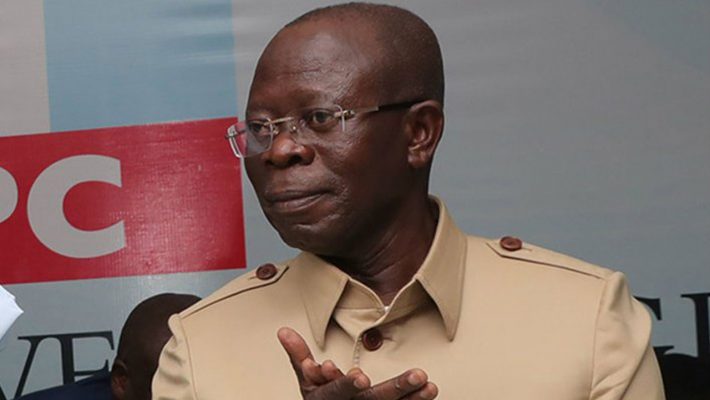
A former two-term governor of Edo State, Adams Oshiomhole, will be among the new faces in the Senate come June. He won the Edo North Senatorial District election with 107,110 votes. He defeated the incumbent Senator, Francis Alimekhena, of the Peoples Democratic Party who scored 55,344 votes. Oshiomhole rose into national prominence when he became the National President of the Nigeria Labour Congress. After his tenure as the governor, he became the National Chairman of the governing All Progressives Congress before he was sacked alongside the National Working Committee members. During the presentation of certificates of return to senators-elect on Wednesday, Oshiomhole, an outspoken politician, boasted that the Assembly would not be a rubber stamp.

The Governor of Ebonyi State, Dave Umahi, has also clinched the Ebonyi South senatorial seat. He won the election with 28,378 votes to defeat his closest rival, Labour Party’s Linus Okorie, who polled 25,496 votes. The incumbent senator, Michael Nnachi, who is a member of the PDP, came third with 11,398 votes. Before joining the race for the Senate, Umahi participated in the APC presidential primary, where he polled 38 votes to come a distant sixth in the election won by Asiwaju Bola Tinubu, now Nigeria’s President-elect. Prior to becoming the governor, Umahi was the deputy governor under Martin Elechi during his eight years in office. After leaving office on May 29, he will retire into the Senate in June.

The outgoing governor of Niger State will be representing Niger North in the 10th Senate having polled 100,197 votes to beat Shehu Muhammad Abdullahi of the PDP, who scored 88,153 votes and Alhaji Ibrahim Wali of the New Nigeria Peoples Party, who scored 13,886 votes. The governor is a graduate of Economics. Like Umahi, after leaving office on May 29, he will also retire into the Senate.
Ibrahim Dankambo
A former Governor of Gombe State, Ibrahim Dankwambo, has eventually realised his ambition to be in the Senate since leaving office as a two-term governor. Dankwambo, who is a member of the PDP, polled 143,155 votes to defeat the candidate of the APC, Senator Sa’idu Alkali, who polled 77,948 votes and NNPP candidate, who polled 4,061 votes. He will be representing Gombe North Senatorial District. He made the attempt in 2019 but was defeated by Alkali. Dankwambo is not just a politician, he is also an accountant. He graduated from the Ahmadu Bello University, did his Master’s in Economics at the University of Lagos, had his PhD in Accounting and worked at the Central Bank of Nigeria. He was appointed as the Accountant General of Gombe State, from where he became the Accountant General of the Federation and served on the board of the CBN before he resigned to pursue his political ambition in 2011.
Gbenga Daniel
A former Governor of Ogun State, Otunba Gbenga Daniel, who is now a member of the APC, also won the Ogun East Senatorial District election after securing 115,147 votes to defeat PDP’s Ajibola Kalejaiye, who scored 58,708 votes. The candidate of the Labour Party polled 13,061 votes.
Daniel was the governor of Ogun State between 2003 and 2011. He served as the Director-General of the Atiku Abubakar Presidential Campaign Organisation for the 2019 elections. He later defected to the APC in February 2021.
Orji Uzor Kalu
A former Governor of Abia State and current Chief Whip of the Senate, Orji Uzor Kalu, has again won his election into the Abia North Senatorial District on the platform of the APC. He polled a total of 30,805 votes to defeat his major opponents, Mao Ohuabunwa of the PDP, who polled 15,175 votes and Nnamdi Iroh of the Labour Party, who got 25,540 votes. Kalu’s first stint at the National Assembly was aborted by the late General Sani Abacha’s regime. Unrelenting in his aspiration, he contested and became the governor of Abia State between May 29, 1999 and May 29, 2007. After his failed attempt to become the president under the Progressive People’s Alliance, a party he formed a year earlier, he recontested the Senate seat and won.
Seriake Dickson
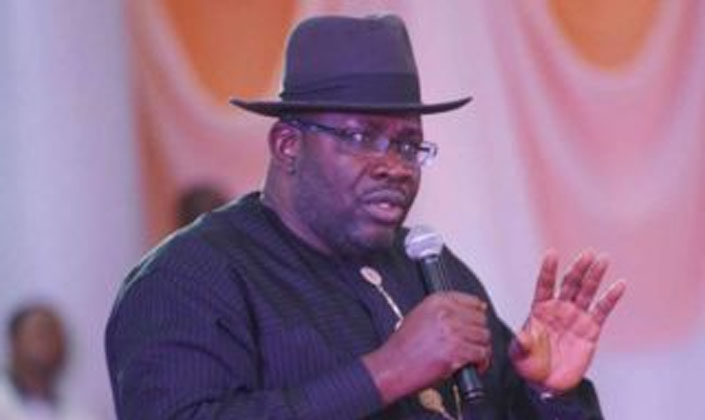
A former governor of Bayelsa State, Seriake Dickson, is the senator representing Bayelsa West in the National Assembly in the ninth Assembly. He has also been re-elected in the February 25 election, as he polled 27,000 votes to defeat his closest rival and candidate of the APC, Wilson Ayakpo Dauyegha, who scored 8,375 votes. Dickson became the governor in February 2012 and completed his second term in February, 2020. Before he became the governor, Dickson was a member of the House of Representatives and had to resign his membership to take up his new assignment. The former governor will be serving his second term in the 10th Senate, the chamber he retired into after leaving office.
Godswill Akpabio

A former governor of Akwa Ibom State, Godswill Akpabio, won the election to represent North-West in the upper chamber. He was once in the Senate in the eighth Assembly, when he was the minority leader. But he lost the seat when he defected to the governing APC. Akpabio was in 2019 named the Minister of Niger Delta Affairs by the President, Major General Muhammadu Buhari (retd.), until 2022 when he resigned to contest the presidential primary of the APC. He will again be part of the 10th Assembly.
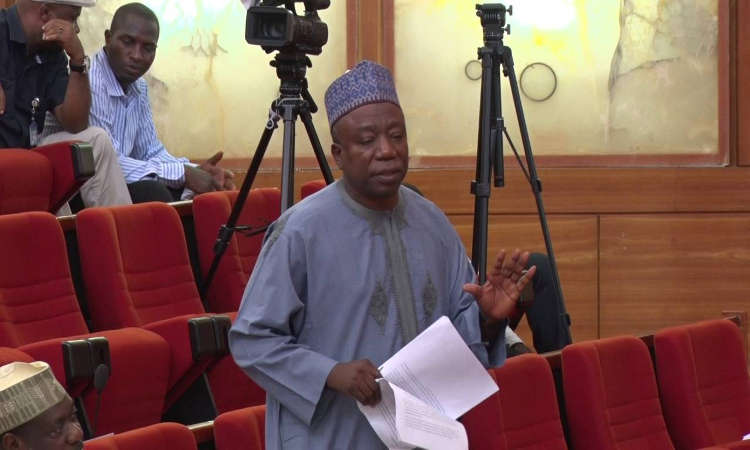
Adamu Aliero is the senator representing Kebbi Central. After serving as the governor of Kebbi State between 1999 and 2007, he was one of the first among his colleagues to be elected into the Senate in 2007. While in the Senate, the then President, the late Umaru Yar’Adua, appointed him as the Minister of the Federal Capital Territory. Aliero however returned to the Senate after he left the position and was re-elected on February 25, defeating the incumbent governor of the state, Atiku Bagudu. Aliero scored 126,588 votes while Bagudu scored 92,389 votes. In the run-up to his victory at the polls, Aliero in May 2022 withdrew from the senatorial primary of the APC and dumped the party for the PDP when he alleged that the scheduled primaries in the state would be“shambolic and patently fraudulent because the delegate list comprised persons handpicked by the state governor to do his bidding”.
Danjuma Goje
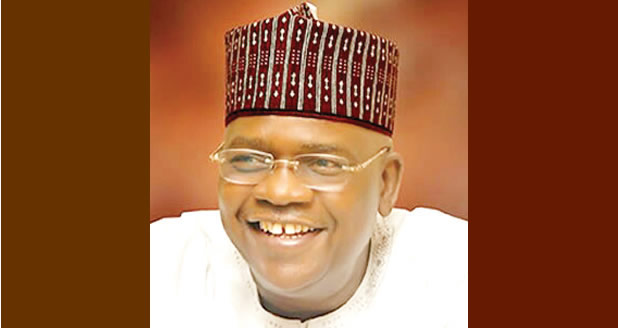
Danjuma Goje was the governor of Gombe State between 2003 and 2011. He thereafter moved to the parliament after concluding his second term as the governor. He has retained his seat at the Senate since then and was in the race for the senate presidency in 2019, but his party, the APC, prevailed on him to step down for Ahmad Lawan, the current Senate President. While the persuasion was ongoing, he, Lawan and some other key party members met with the President at the presidential villa. After the meeting, Goje endorsed Lawan, and about a month after, the corruption charges against him by the Federal Government were also dropped by the Attorney General of the Federation and Minister of Justice, Abubakar Malami. Goje will also be a member of the 10th Assembly.
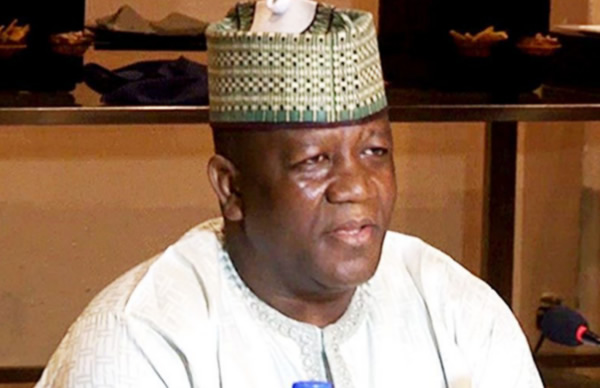
A former Governor of Zamfara State, Abdulaziz Yari, won the Zamfara West Senatorial District on the platform of the All Progressives Congress, after scoring 147,346 votes to defeat his closest opponent, Bello S-Fagon, a member of the PDP, who scored 58,832 votes. Yari won the senatorial seat in 2019 but lost due to the nullification of all the APC primaries in the state by the Supreme Court. By implication, all the positions won by the APC in the 2019 general elections were ceded to the PDP which came second. But in the 10th Assembly, Yari will be a member.
Interestingly, the number of former governors in the 10th Assembly would have been more, but no fewer than seven governors whose second tenures end on May 29, 2023 lost their senatorial bids.
The governors are Ben Ayade of Cross River State, who lost to PDP’s Agom Jarigbe; Samuel Ortom of Benue State who lost to APC’s Titus Zam; Ifeanyi Ugwuanyi of Enugu State, who lost to Labour Party’s Okechukwu Ezea; Darius Ishaku of Taraba State who lost to APC’s David Jimkuta; Simon Lalong of Plateau State, who lost to PDP’s Napoleon Bali.
Also, Governor Okezie Ikpeazu of Abia State lost his senatorial bid to a sitting senator, Eyinnaya Abaribe of the All Progressives Grand Alliance, while Governor Atiku Bagudu of Kebbi State, who lost to PDP’s Adamu Aliero.
In the current Assembly, governors who had earlier retired to the Senate but won’t be part of the 10th Assembly include former Governor Ibikunle Amosun of Ogun State; former governor of Nasarawa State and incumbent National Chairman of the APC, Abdullahi Adamu; former governor Gabriel Suswam of Benue State; former governor Tanko Al-Makura of Nasarawa State; and former governor Rochas Okorocha of Imo State.
Nnamani hopeful, Shekarau out
Meanwhile, there is an isolated case of a former governor of Enugu State, Chimaroke Nnamani, who governed the state between 1999 and 2003. He joined the Senate in 2019 to represent Enugu East Senatorial District. He is seeking re-election but the poll in his senatorial district was postponed by the Independent National Electoral Commission. This followed the killing of the Labour Party candidate for the senatorial district, Oyibo Chukwu, a few days before the election. The election was initially postponed till March 11, but will now hold on March 18 following the postponement by the electoral umpire over the BVAS configuration.
Similarly, former governor Ibrahim Shekarau of Kano State is a member of the current Assembly, representing Kano Central Senatorial District. He sought re-election on the platform of the New Nigeria Peoples Party and was initially declared the winner of the February 25 election. But the Supreme Court on Friday removed him and named Rufai Hanga as the authentic candidate of the party.
In previous Assemblies, however, former governors Theodore Orji of Abia State; Bukola Saraki of Kwara State, Sani Yerima of Zamfara State, Aliyu Wamakko of Sokoto State, Ahmed Makarfi of Kaduna State, and George Akume of Benue State were all members of the Red Chamber.




